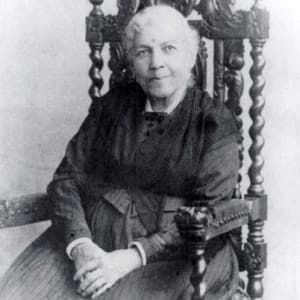
James Weldon Johnson
James Weldon Johnson was an early civil rights activist, a leader of the NAACP, and a leading figure in the creation and development of the Harlem Renaissance.
Synopsis
Born on June 17, 1871, in Jacksonville, Florida, James Weldon Johnson was a civil rights activist, writer, composer, politician, educator and lawyer, as well as one of the leading figures in the creation and development of the Harlem Renaissance. After graduating from Atlanta University, Johnson worked as a principal in a grammar school, founded a newspaper, The Daily American, and became the first African American to pass the Florida Bar. His published works include The Autobiography of an Ex-Colored Man (1912) and God's Trombones (1927). Johnson died on June 26, 1938, in Wiscasset, Maine.
Early Life and Career
James Weldon Johnson was born in Jacksonville, Florida, on June 17, 1871, the son of a freeborn Virginian father and a Bahamian mother, and was raised without a sense of limitations amid a society focused on segregating African Americans. After graduating from Atlanta University, Johnson was hired as a principal in a grammar school. While serving in this position, in 1895, he founded The Daily American newspaper. In 1897, Johnson became the first African American to pass the bar exam in Florida.
Not long after, in 1900, James and his brother, John, wrote the song "Lift Every Voice and Sing," which would later become the official anthem of the National Association for the Advancement of Colored People. (The Johnson brothers would go on to write more than 200 songs for the Broadway musical stage.) Johnson then moved to New York and studied literature at Columbia University, where he met other African-American artists.
NAACP Career and Published Works
In 1906, President Theodore Roosevelt appointed James Weldon Johnson to diplomatic positions in Venezuela and Nicaragua. Upon his return in 1914, Johnson became involved with the NAACP, and by 1920, was serving as chief executive of the organization. Also during this period, he became known as one of the leading figures in the creation and development of the African-American artistic community known as the Harlem Renaissance.
Johnson published hundreds of stories and poems during his lifetime. He also produced works such as God's Trombones (1927), a collection that celebrates the African-American experience in the rural South and elsewhere, and the novel The Autobiography of an Ex-Colored Man (1912)—making him the first black-American author to treat Harlem and Atlanta as subjects in fiction. Based, in part, on Johnson's own life, The Autobiography of an Ex-Colored Man was published anonymously in 1912, but did not attract attention until Johnson re-issued it under his own name in 1927.
Later Years and Legacy
After retiring from the NAACP in 1930, Johnson devoted the rest of his life to writing. In 1934, he became the first African-American professor at New York University.
Johnson died in a car accident in Wiscasset, Maine, on June 26, 1938, at the age of 67. More than 2,000 people attended his funeral in Harlem.




